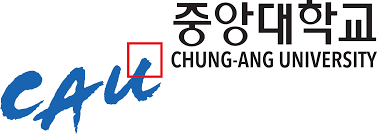Call for Workshops
Overview
The BDTA 2016 Conference caters for a limited number of workshops on dedicated session topics.
The aim of these workshops is to discuss work in progress and explore opportunities for new research related to a topic of interest within the context of the conference.
Proposals will be evaluated regarding relevance and anticipated interest, and should include Workshop title, presenter information, abstract, and intended audience.
Introduction
ITC technologies are the most important element in modern science and these surfaces as a core technology forming the future shape in securing the world competitiveness in science and technology. Also, ITC technologies are one of the fastest growing part in the world. Especially, Big Data has become the most important issue in ITC technologies and it is required to be innovative and dynamic approach methods.
This workshop focuses on the various issues based on Big Data, such as, Internet of Things, Social Network, Security, Cloud Computing, Semantic Approach method and so forth. In addition the workshop will be to bring together the researchers from academia and industry as well as practitioners to share ideas, problems and solutions.
Topics of Interest
Preferred topics in this workshop include (but are not limited to):
• Intelligent Information Processing in Big Data
• Semantic Approach for Big Data
• Applications of Linked Data
• Internet of Things based Big Data Processing
• Applications of Smart Devices
• Intelligent Social Network Data Analysis
• Context-aware services based Big Data
• Biometric Technologies based Big Data Processing
• Multimedia based Big Data Searching, Storing and Management
• Big Data Security
Information for Authors
The papers will be reviewed by ISSB’16 International Program Committee. The accepted submissions for this workshop will be published in the BDTA 2016 conference proceedings. The papers should present original and unpublished research.
Papers should be submitted through Confy system, and have to comply with the SPRINGER format. Please follow the instructions given at the BODA 2016 site to format and submit your paper. Authors have to find more information from the following webpage.
Workshop Chair
• Dr. Chang Choi, Chosun University, Rep. of Korea
Program Committee (Tentative)
• Marek Ogiela, AGH University of Science and Technology, Poland
• Fang-Yie Leu, Tunghai University, Taiwan
• Kangbin Yim, Soonchunhyang University, Korea
• Yousun Kang, Tokyo Polytechnic University, Japan
• Hoon Ko, Sungkyunkwan University, Korea
• Aniello Castiglione, University of Salerno, Italy
• Juhyun Shin, Chosun University, Korea
• Hsing-Chung Chen, Asia University, Taiwan
• Lidia Ogiela, AGH University of Science and Technology, Poland
• Ilsun You, Soonchunhyang University, Korea
• Junho Choi, Chosun University, Korea
• Duk Shin, Tokyo Polytechnic University, Japan
• Xuefeng Piao, Harbin Institute of Technology, China
• Christian Esposito, University of Salerno, Italy
• Dongmin Choi, Chosun University, Korea
Introduction
With emergence of big data, analysis and appliance of unstructured data come to the fore. Above all, contents analysis is being one of the major topics in unstructured data analysis, as the amount of contents distributed on web is exponentially increasing. However the existing contents analysis approaches from metadata-based to affective analysis cannot overcome their inherent limitation which is a semantic gap. It is hard to bridge between low-level semantic features in the contents and high-level semantic features, because bridging them just based on mathematical foundation causes questionable logical leaps.
Accordingly narrative-based contents analysis approaches are being magnified as a complementary method. In the past, analyzing narratives of contents is an own domain of critics who major in the humanities. However, nowadays since a huge amount of contents is published on web, a qualitative analysis for them has no choice but to face with physical limitations. Also the narrative-based contents analysis requires not only knowledge of data mining, pattern recognition, and image processing, but also humanistic background like narrative theory, storytelling, and so on. It makes interdisciplinary study between Humanity and Big Data analysis necessary.
In this workshop, we are focusing on the various issues on narrative-based contents analysis, such as, correlations between human cognition and narratives, analyzing and visualizing narratives, authoring support for narrative contents, mining patterns from narratives, recommender system for narrative contents, and so forth. Also, it is opened to every topics about computational processing of narrative contents.
Topics of Interest
Preferred topics in this workshop include (but are not limited to):
• Narrative &Artificial Intelligence
• Authoring Support Tool for Narrative Contents
• Information Retrieval based on Narratives
• Narrative-based Multimedia Indexing
• Digital Interactive Storytelling
• Recommender System for Narrative Contents
• Media Curation with Narratives
Workshop Chair
• O-Joun Lee, Chung-Ang University
Publication
All presented papers in the BDTA 2016 will be published in the BDTA 2016 conference proceedings.
Highlights
• The event is endorsed by the European Alliance for Innovation, a leading community-based organisation devoted to the advancement of innovation in the field of ICT.
• All accepted papers will be submitted for publication in Springer and made available through SpringerLink Digital Library, one of the world's largest scientific libraries.
• Proceedings are submitted for inclusion to the leading indexing services: Elsevier (EI), Thomson Scientific (ISI), Scopus, Crossref, Google Scholar, DBLP.
• Best Papers will be considered for publication in the EAI Endorsed Transactions on Scalable Information Systems.








































